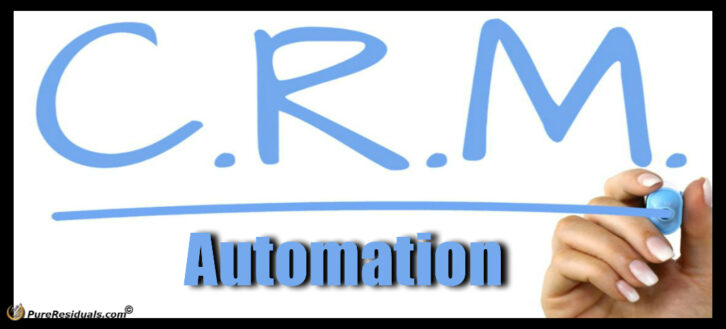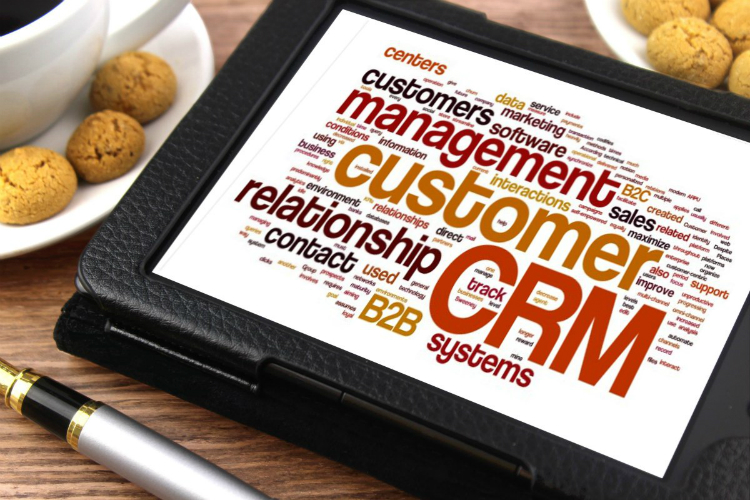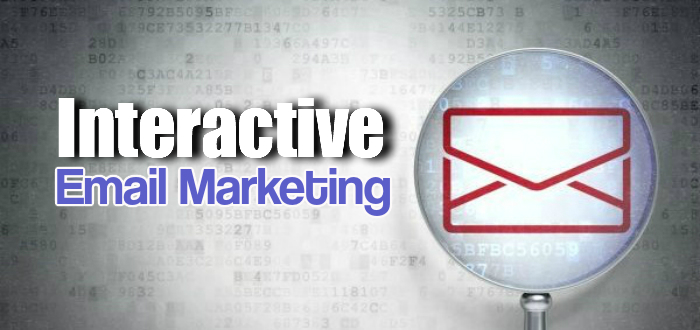Running small business in a highly competitive environment is not for the faintest of heart. The high costs of running different operations and scarcity of resources can unnerving. The time resource always comes in limited packages. It gets even more scary when you have to battle out for customers against “Goliaths” of the industry.
The truth is, you can’t create more hours in a day. But, by investing in the right marketing tech, can give you the leverage to stand out or even outperform your competitors. According to a report by Forbes Insights and Turn, 74% of businesses that use data-driven marketing reported a competitive advantage especially with regard to brand loyalty and customer engagement and as a result, increased revenues.
That is where marketing automation comes in handy.
What is marketing automation?
Marketing automation means using technological resources to automate workflows and tasks for marketing process. That includes customer and prospect profiling on the landing pages. It also includes customer engagement, sending targeted, auto-emails and lead scoring.
Why should you automate your marketing?
Today’s business must grapple with the challenge of the ever changing customer demands. Customers demand authentic relationships with their favorite brands. For your business to stay competitive and maintain intimate relationship with your consumers, you need to get creative. You need to get better tools that fuel your growth.
Besides, growth-oriented brands employ the use of marketing automation to maximize on limited resources, time and energy. That way, it becomes easier for you to do more for less. As a result, it enables them to gain a foothold in the market.
Today most SMEs are waking up this challenge. In fact, Gartner predicts that by 2020 a full 85% of consumers will manage their customer relationship without talking to a human.
How does CRM help in marketing automation for SMEs?
Most marketing campaigns never occur one at a time. Most of the time, you can run dozens or even hundreds of campaigns. The most challenging part is that all the campaigns must always run concurrently. These campaigns attract new leads, prospects, and customers. That means you need to nature the leads all the way through the pipeline until the graduate to customers. Clearly, doing all that would require a set of effective management and automation tools.
So the question is how can a well-run customer management system (CRM) help automate these processes to increase revenue?
By providing crucial campaign data
As a marketer, you need to execute campaigns that prove their success by driving sales. Your CRM software offers the most useful marketing features – lead nurturing, campaign management, and analytics and reporting – that you will need to run your campaign.
But, you can measure or analyze a data that you don’t have. A CRM tracks and stores your marketing campaign, and get all the customer data – browsing activity, pages visited, areas of interest, etc.
The reporting and analytics feature will help you:
- Measure the effectiveness of your campaign
- Track email performance
- Monitor the behavior of your leads
- Prove return on investment (ROI)
- Track specific web-pages
Knowledge is power. Once the data is obtained and analyzed, you will gain insights that inform your next marketing strategy to maximize on effectiveness. At the end of the day, it would translate to more sales and increase in revenues.
Personalize messaging
Your competitive advantage = offering unique, highly targeted experience to your customers. Your approach need to prioritize your customer in a unique way. But, it isn’t as easy to achieve this feat consistently for all customers and prospects across all your marketing channels. Besides, creating intimate one on one relations with the prospects is a difficult and highly expensive process.
Besides, engaging the right person, in the right way and at the right time is its own hairball. The need for functionality across various channels versus consumer expectation to provide seamless experience is another uphill task.
CRM marketing automation helps you come up with customize marketing messages to your diverse prospects in different stages of the pipeline. That way, you will be able to stand out in the noisy, value-drive digital space by generating authentic content that auger well with your audience.
According to report, marketers have found a 760% increase in email revenue from segmented campaigns.
Marketing automation also provides marketers with a wealth of data that helps you generate personalized content. That way, it becomes easier to leverage landing pages builders, email templates, call to action buttons and dynamic content to pull different user segments back to the site.
Helps boost client retention
The customer is everything. That is why marketers are always busy trying to net new leads and nurture them to become sales-ready. They need that customer.
But, why do we need to retain customers? One study revealed that increasing the customer retention rates by 5% can translate to a 25%-95% increase in profits!
But, how can CRM automation achieve that for your SME?
A CRM helps you send personalized messages to your prospects and then monitor their behavior across different platforms. This leads to better customer experience that not only helps with customer retention but also helps cement customer loyalty to your business. The critical feedback returned also helps improve your offering.
Besides, using your CRM, you can come up with auto-surveys. The surveys not only help garner customer feedback but also help drive referral revenue to your business.
CRMs also offer triggered messaging. That way, it becomes easy to suggest testimonials, send referral incentives and ask for product reviews. That way, you end up winning the heart of your customer, retain them and increase revenues.
Facilitates managed execution
If you cannot methodically execute upon your best-planned campaign, it will fail. But, a good CRM can help you keep your campaigns on track. Thanks to the CRM software, you will have a real-time visibility to the status of every target segment of the population. Your CRM will always remind you maintain your marketing schedule. It will also initiate follow-ups or even distribute follow-up emails automatically.
This function becomes more important especially where you are running multiple promotions. Besides, the CRM software can help you run multiple campaigns and also help keep track on the respective prospects responding in different campaigns. The software also let you know which task generated the worst or best responses.
For example, using your CRM, you can assign a object number to each campaign, all the way until the end of the entire marketing cycle. Both the traditional on-premise CRM or the cloud-based type can achieve this kind of annotation. And, that makes it easy to pick up a specific campaign from a number of responses garnered from the campaigns you are running.
Let say, you are intending to send out a podcast and white paper to different segments of the population – CEOs and presidents and IT professionals. For example, you can use a unique ID in your CRM to track responses from prospects who received your white paper and those who attended your webinar. That way, you can for instance, realize that IT professionals were more positive about the white paper while presidents and CEOs loved the podcast. The ability of the CRM to track the two campaigns made it easier to compare the outcomes.
Avoid duplicate efforts
Your sales force automation software gives you a bird’s eye view of where each visitor, marketing qualified lead, or prospect stands on the sales pipeline. That way, both the sales and marketing department won’t be working on the same lead.
Besides, it helps the marketing department to tailor their content. It also helps the sales team to prepare targeted messaging to sales-ready leads.
Most companies, according to Marketo, “spend 30-40% of their revenue on sales and marketing.” But, by coordinating their activities, the two teams can “optimize on what their company spends on them.”
That is where investing in a CRM becomes important. It helps align the sales and marketing team through a real-time data and streamlined process. As a result, it makes marketing team for effective and productive.
SMEs: Go forth and conquer the market
The tech scene is changing the way business conduct business. We are no longer living in the ages where it took businesses owners a bit of imagination, and a polished product sales rep, to see the benefits in using CRM software for marketing automation.
While the number of SMEs embracing the technology was scanty a few years ago, today, the tables are turning. Marketing automation is doing a great job by offering SMEs platforms that leverage customer data to design targeted approach that empower their marketing and increase sales. Besides, it improves data that is acquired on a lead. That way, both the marketing and sales teams would be able to make better decisions. At the end of the day, your business will keep competitive, stay relevant and be positioned for success.
Author Bio
Fretty Francis works as a Content Marketing Specialist at SoftwareSuggest, an online platform that recommends software solutions to businesses. Her areas of expertise include CRM solutions, ecommerce platforms, and project management software. In her spare time, she likes to travel and catch up on the latest technologies.







